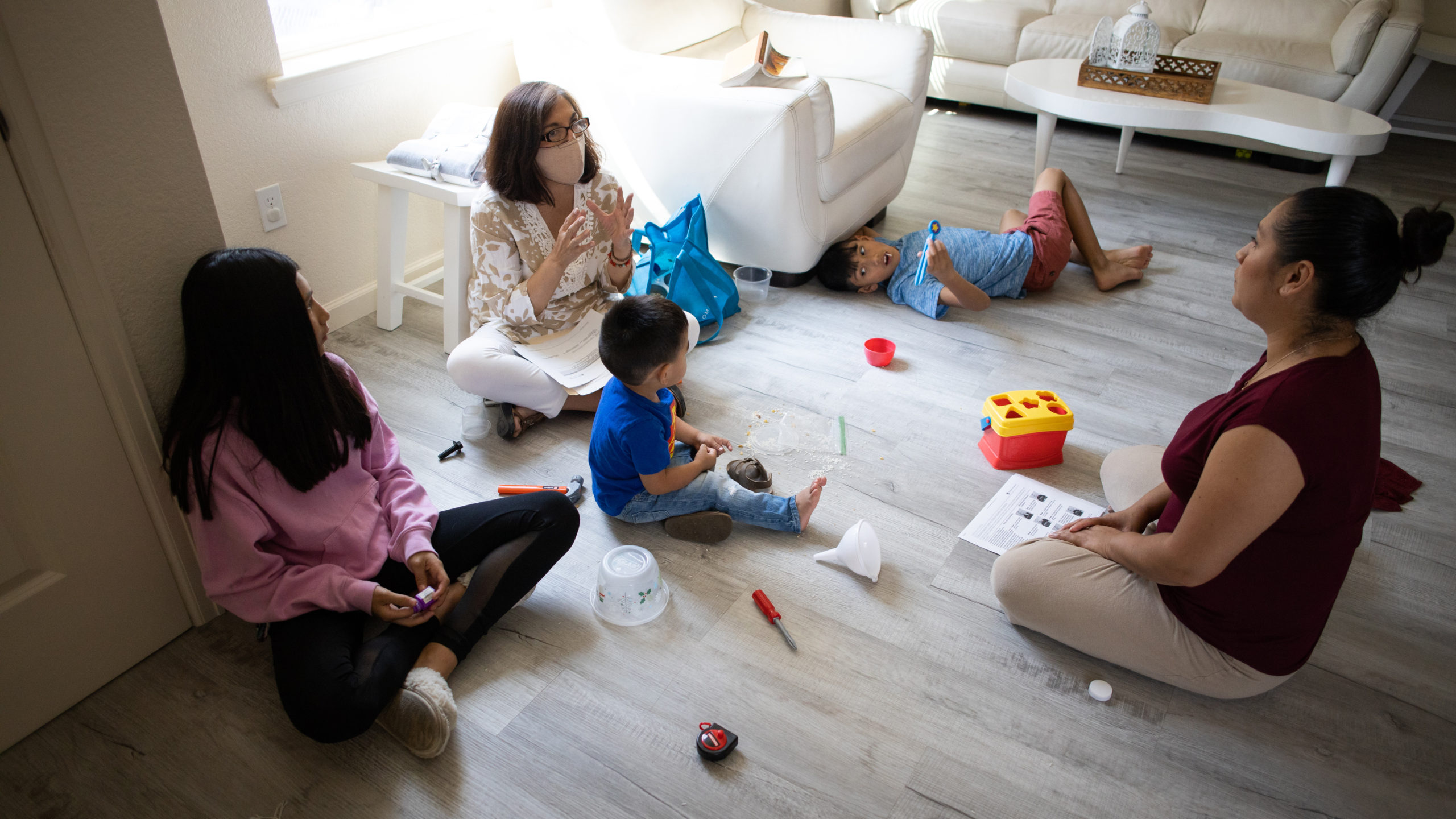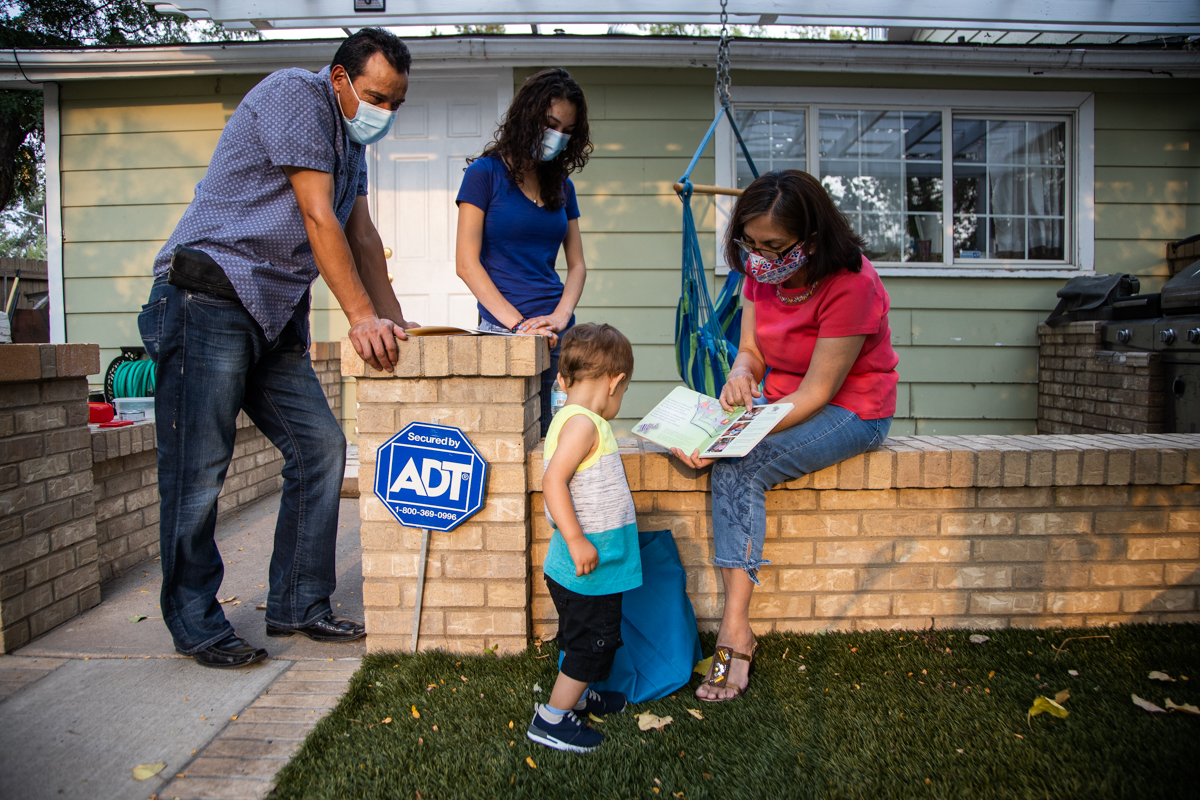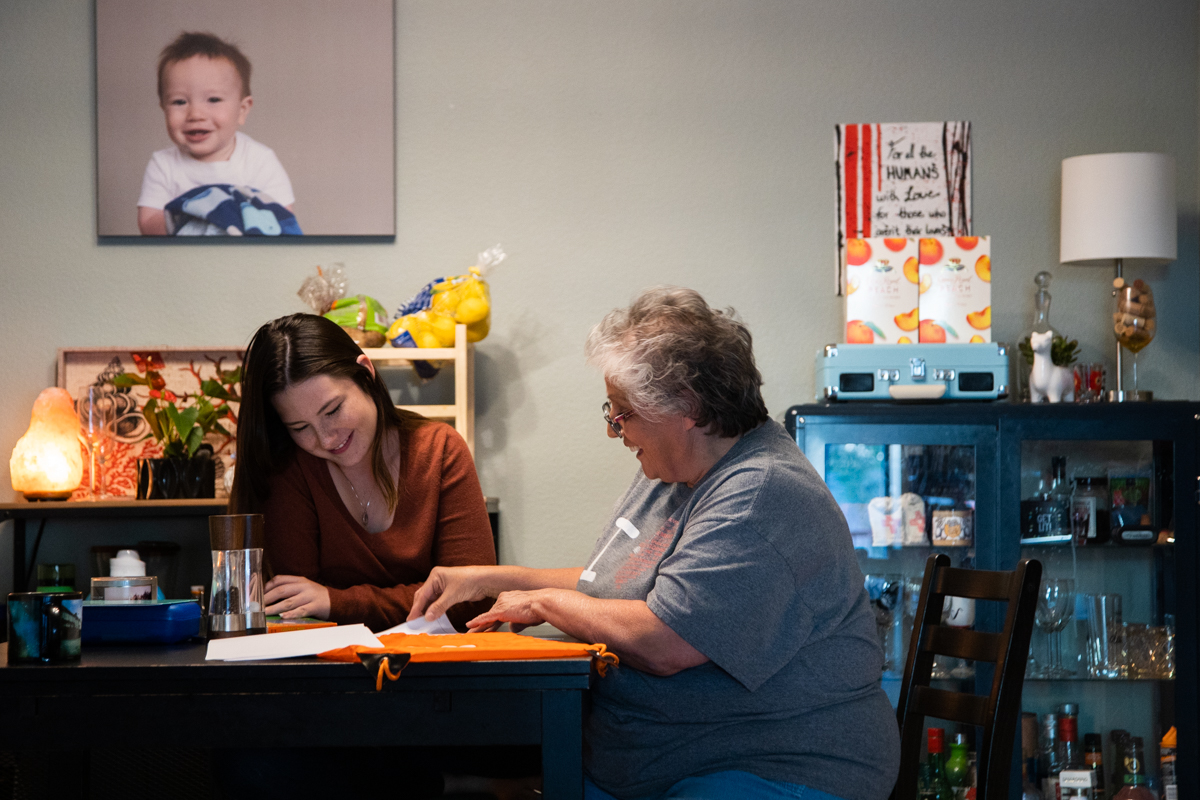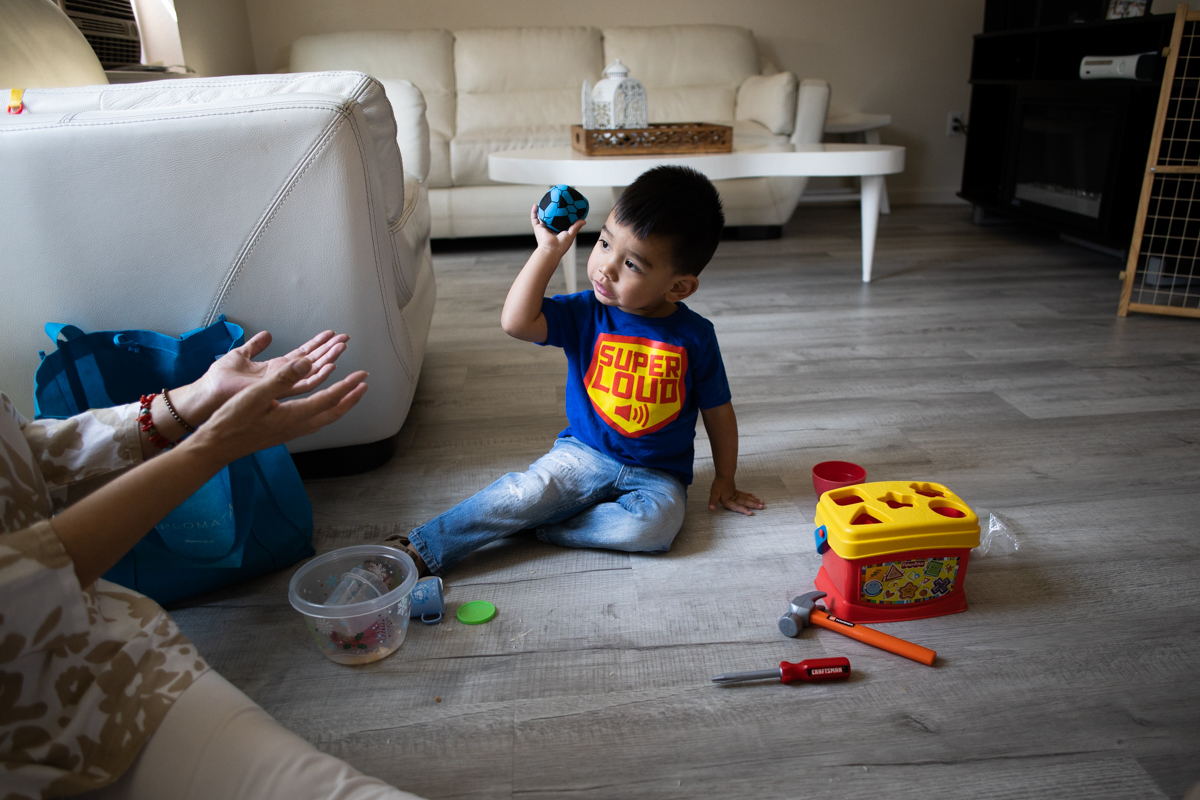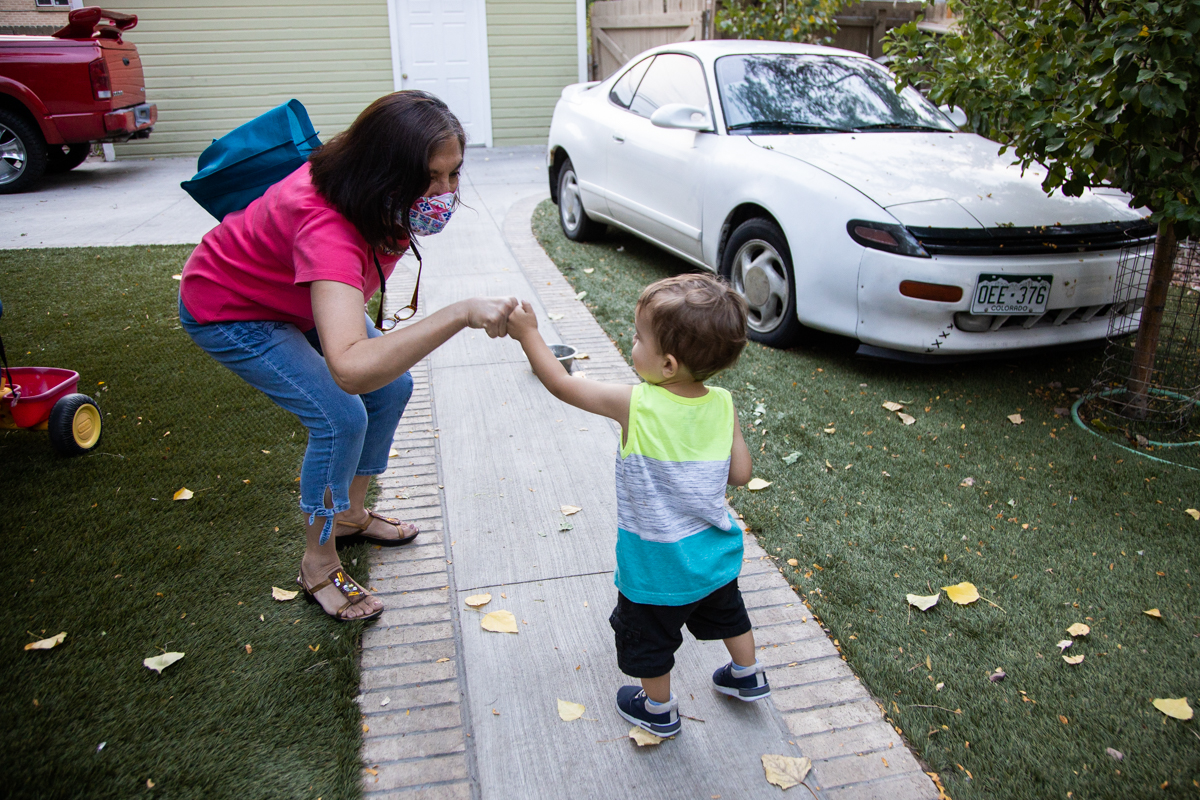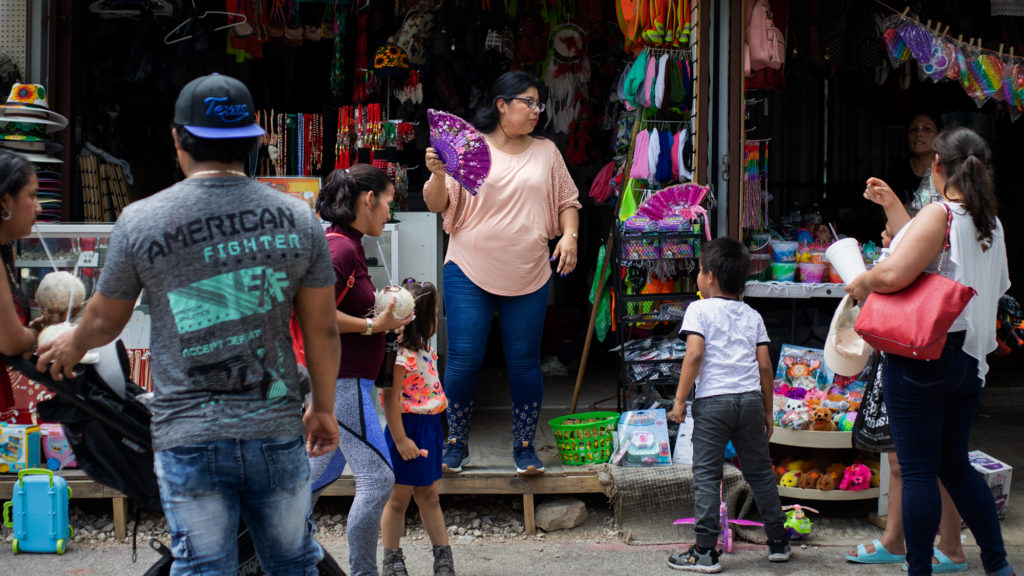Click the “play” button on the image above to watch a short film about home visitation.
When Maria Soto walks through the back gate of a small house in Aurora, Colorado, Cesar Orozco’s face lights up. The 19-month-old loves his weekly visits with Soto, who serves as a home visitor to Cesar and his family, teaching a curriculum designed to educate parents about childhood development.
Over the next hour, Soto will teach Cesar’s father and adult sister different techniques to interact with the toddler, including games to teach him colors and numbers, and how to respond to his tantrums. “Children learn by playing,” says Soto, “It’s just the best and most effective way that the child can learn.”
Maria Soto reads a book with Cesar Orozco as she demonstrates to his father, Cesar Orozco, and sister, Vianey Rascon, different techniques for engaging with the toddler.
Home visiting is exactly what it sounds like — trained professionals come to your home to provide services, anything from healthcare to therapy to education. In Colorado, the nonprofit Parent Possible supports home visitors across the state by working with programs like Parents as Teachers (PAT) and Home Instruction for Parents of Preschool Youngsters (HIPPY), two evidence-based programs aimed at preparing young children nationwide for kindergarten.
Because of the pandemic, most home visits have moved online, but the home visitors continue to provide a critical service to parents at a time when education and childhood development are falling primarily to family caregivers.
“A lot of the families say, if it wouldn’t be for your program, I don’t know what I would be doing with my kids,” Soto says.
While fewer daycares and preschools are available during the pandemic, funding for home visitation programs is falling as a result of the financial downturn, leaving some parents with even fewer options. PAT and HIPPY programs are provided at no cost to parents in Colorado, but state and grant funding have been cut significantly.
“We need not just the funding we had, we need more funding because there are going to be more families that are concerned about putting their child into a center-based program,” says Heather Tritten, executive director of Parent Possible.
The HIPPY program in Jefferson County had to cut seven of 12 positions for home visitors as a result of funding cuts made in response to the pandemic. They will only be serving about 74 families this year, compared to 180 last year, according to Kathy Harrison, program coordinator for JeffCo HIPPY, partly a result of the cuts, but partly because some parents have stopped responding to phone calls.
“I think our biggest challenge right now is reaching the most at-risk families,” says Harrison. “We noticed during [the pandemic] that they kind of disappeared. And that was really, really hard.”
Josue Rosales plays on the floor with Maria Soto, his home visitor who has been working with his family since he was an infant.
Harrison attributes the change, in part, to gaps in technology, because many families who use their services don’t have computers or internet at home. HIPPY also serves many undocumented families, who have been disproportionately impacted by the coronavirus.
“They didn’t have medical care. They were continuing to work while trying to manage kids at home,” Harrison says. “One of the things that I really want to look at is how we can make sure we hang onto those families, that we’re there for them. I think if there’s ever been a time where this is needed, it’s now.”
For Cesar, who’s mother died when he was an infant, the home visits have provided much needed support for his father and sister, both before and during the pandemic. Vianey Rascon, Cesar’s older sister, says Soto’s lessons have taught them to have more patience with the toddler, and to know what to expect as he grows. “Without her, we would be completely lost,” she says.

